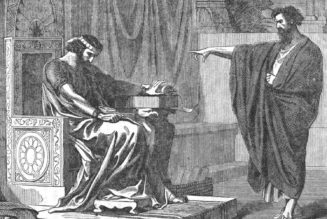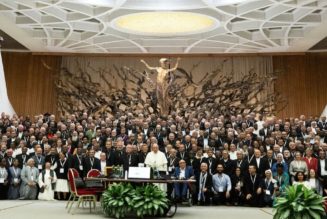The late great physicist Stephen Hawking once speculated that, besides the mathematical equations he and others had developed about the nature of the universe, something was needed to “breathe fire” into them – i.e., make them a reality. Reading through Pope Francis’ latest encyclical, Fratelli Tutti, released just this weekend, you can’t help feeling that it, too, is seeking some concrete, creative fire.
If I were a Catholic progressive, and someone asked me what to read to understand where the Church stands today, however, this wouldn’t be the text I would press into his hands. And it has nothing to do with liberal or conservative. With all due respect to the Holy Father, it’s all but unreadable. Only those of us who love the Church and are loyal to the pope will get through it, from duty, not intellectual or spiritual interest. And that’s a serious shortcoming for a text addressed not only to Catholics but all people of good will.
It would be surprising if it does not produce disappointment among Catholic progressives, who have been expecting something big. Their favorite policies are here – and the media will push them as something fresh. But such sparks as are struck are buried under mountains of repetition, conceptual vagueness, and utopian aspirations.
Recent papal documents are not exactly known for succinctness – St. John Paul II often went on a lot longer than he should. And there’s a kind of inside-Church-speak that enters into all of them. But usually they have some central stabilizing clarity. Here, it’s universal human brotherhood – “fraternity and social friendship” in the title – which is anything but clear even after nearly 200 pages.
As expected, the pontiff touches on a number of themes that have become hallmarks of his papacy: individualism, consumerism, isolation, the poor and marginalized, migrants and refugees, the throwaway culture, the environment (“our common home”), the crucial importance of love. The first fifty or so paragraphs lay out a catchall sociological analysis – the kind of vague general survey that has become common in recent Vatican documents, especially in the texts related to recent synods.
I’m teaching at Thomas More College this semester and, perhaps as a consequence, I’ve been thinking about what I would say if a student submitted this as an essay. It would go something like this.

I appreciate your passion and ambition, but the result makes me wonder whether the topic is too big and might not be better treated in smaller, more disciplined pieces. You make a number of large assertions that have to be better explained. For example:
• You denounce the emergence of “populism” and call for commitment to international institutions. In many nations today, people feel threatened by those very institutions and the international ethos they are spreading; they say they “don’t recognize” their own countries anymore. You talk a lot about dialogue. Shouldn’t you acknowledge the concerns these large numbers of people have – however poorly expressed by themselves or their leaders – and not simply dismiss it as their closing in on themselves?
• You reject “the culture of walls,” in many ways rightly – where a narrow spirit is emerging. The great G.K. Chesterton, however, warns in his book The Thing [One source of the name of this site – RR] “The more modern type of reformer goes gaily up to [a fence] and says, ‘I don’t see the use of this; let us clear it away.’ To which the more intelligent type of reformer will do well to answer: ‘If you don’t see the use of it, I certainly won’t let you clear it away. Go away and think. Then, when you can come back and tell me that you do see the use of it, I may allow you to destroy it.’” Bridges are great, but are walls obsolete?
• The death penalty, you claim, is “inadmissible,” (and now add that even life sentences are a “secret death penalty”). The experience of every nation in every age seems to argue against this conclusion. You base your argument on the fact that no one, however sinful, ever loses his or her human dignity. True. But who’s arguing that a person sentenced to death loses human dignity? There are specific situations where such punishments may be necessary, even moral.
• In the whole world, there are only several hundred state-sponsored executions per year, so far as we can tell from reports. There are, globally, close to 60 million abortions yearly, roughly the same number of people as died in World War II. Abortion only gets one passing mention in your text. Why?
• Speaking of war, you have often said that situations of violence “have become so common as to constitute a real ‘third world war’ fought piecemeal.” How, exactly? Who are the combatants? During the Cold War, America and the USSR fought proxy wars in Angola, Afghanistan, Nicaragua, etc. Who’s fighting now? Are there “sides”? Is one preferable to another? There are always wars and rumors of wars, so why are we now in a “world war”?
I could go on, but I’ll practice what I preach and stick close to the point.
Part of the difficulty in addressing these multitudinous matters, besides the lack of writerly self-discipline, is the limitation the pope set for himself. The encyclical is addressed to all people of goodwill and partly continues the Abu Dhabi Document on human fraternity that Francis signed with Grand Imam Ahmad Al-Tayyeb last year, which caused widespread consternation among Catholics because it asserts that God has willed a variety of religions. Thus, Francis can speak about but not fully draw on the only person that Christians believe can change hearts and breathe the fire of love into our efforts: Jesus Christ.
There’s nothing wrong with addressing the audience he chose, but in other moments the pope has worried about Pelagianism – the heresy that we can reform and save ourselves by our own efforts. He’s even recommended people read Robert Hugh Benson’s Lord of the World, a kind of sci-fi dystopian novel that highlights how a charismatic world leader arises and seduces many into thinking that he represents the way beyond divisions such as nations and religions, into a broader and more inclusive humanism.
Francis has appealed himself here and elsewhere to a reformed humanism, a Christian humanism. It will be interesting to see if this encyclical moves us any closer to that goal.
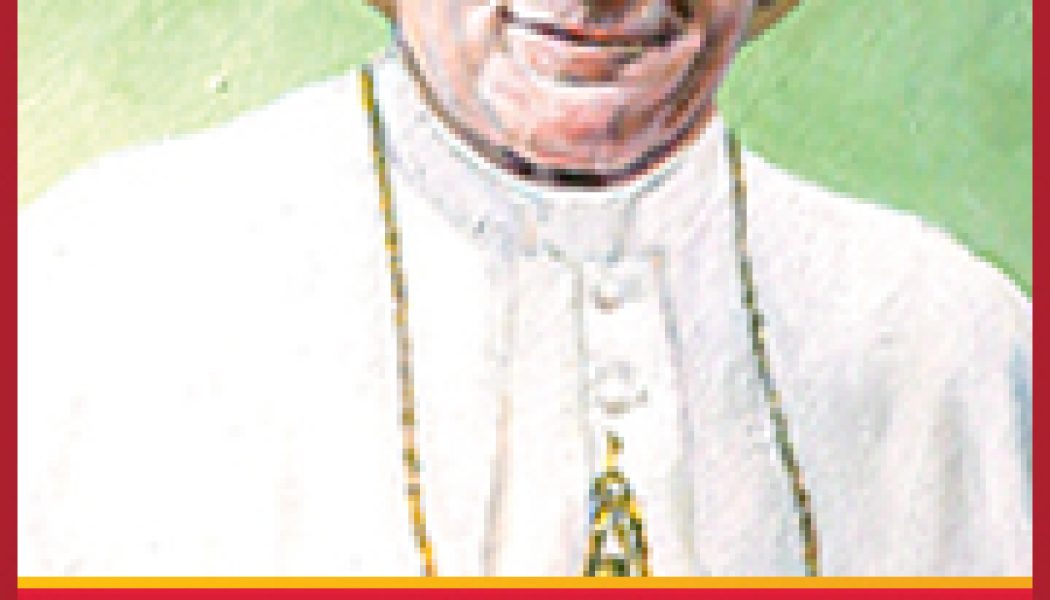

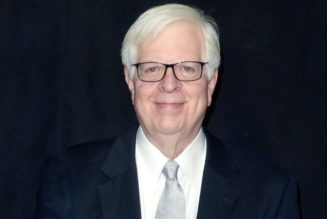


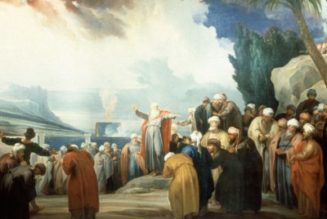
![More horrifying images turn up in pitch-black ‘Baalenciaga’ ad campaign [caution: disturbing photos in this story]…](https://salvationprosperity.net/wp-content/uploads/2022/11/more-horrifying-images-turn-up-in-pitch-black-baalenciaga-ad-campaign-caution-disturbing-photos-in-this-story-327x219.png)
